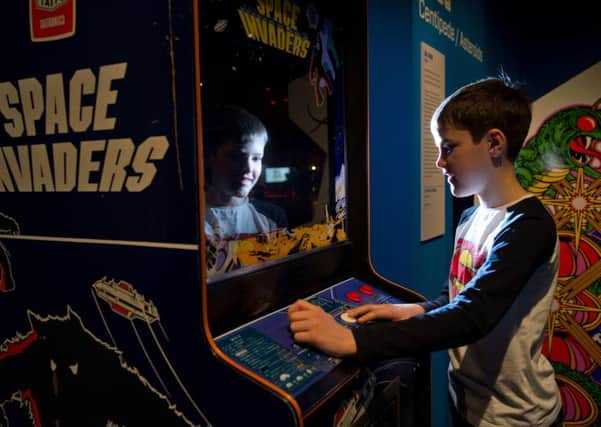How Scots video games are addressing mental health


Most people view video games as home entertainment – just another way to whittle away the hours.
But the work of a new generation of developers is proving that gaming can have a far more positive impact.
Advertisement
Hide AdAdvertisement
Hide AdMental health issues are being addressed by a growing number of video games in innovative ways.
The process of making these titles, in turn, has helped some developers better understand their own mental health.
Christos Reid, a full-time developer in London originally from Milngavie, East Dunbartonshire, is in the process of developing an autobiographical videogame titled OCDEMONS.
It aims to provide a realistic depiction of living with obsessive compulsive disorder (OCD).
“I was inspired to make it because I make games about my life already, and this was an aspect of myself I wanted to explore and discuss,” the 27-year-old said.
“I think it’s vitally important that games deal with mental health properly.
“The interactive nature of games means that players can really live through someone’s experiences, rather than engaging in a passive experience, like reading a novel or watching a film. That interactive element can really help to educate people about mental health issues like OCD, depression, ADHD and more.”
Several mainstream titles such as Darkest Dungeon, released in February this year, already feature characters who are more than faceless warriors casually blasting their way through a strange world. Each character has a ‘stress meter’ which rises according to their circumstances.
Advertisement
Hide AdAdvertisement
Hide AdOther games have attracted controversy, however, for installing devices such as ‘sanity meters’ on their characters.
The impact of playing video games on a users’ mental health is a contentious issue.
The American Psychological Association’s journal, American Psychologist, reported in 2013 that potential downsides to gaming should not be ignored - but neither should the benefits.
“Important research has already been conducted for decades on the negative effects of gaming, including addiction, depression and aggression, and we are certainly not suggesting that this should be ignored,” said lead author Isabela Granic, Professor of Developmental Psychopathology at Radboud University Nijmegen in The Netherlands.
The authors noted gaming’s potential to teach children crucial skills like problem solving, creativity and resillience.
“If playing video games simply makes people happier, this seems to be a fundamental emotional benefit to consider,” added Granic.
Vaida Plankyte, a computer science student at the Unviersity of Edinburgh, was part of a four-strong team that created There Is a Light That Never Goes Out, which its developers describe as “a short game exploring the feeling of being paralysed by old memories, doubts and habits that prevent you from starting a new life”.
Vaida, 17, hopes the game will help others better understand what it’s like to live with anxiety.
Advertisement
Hide AdAdvertisement
Hide Ad“Games are very powerful at making a player emphasise, since playing a game involves understanding the rules of the artificial world,” she said.
“Explaining what anxiety is like can be frustrating, since people often have a hard time grasping what kind of thoughts and considerations go through an ill person’s mind.
“By giving them a game to play that pushes them to take a different view, and actually puts them in the spot of handling the different variables that affect the emotional state of a character, players discover how mental illnesses behave and that it is very challenging to learn how to deal with those issues, as they can be unpredictable and hard to control - both concepts that are easy to communicate through games.
“That’s why I think that games that have mental illnesses as their main themes are essential, since they allow people to subconsciously realise how the illness works and how it adds a lot of hurdles in a person’s day to day life.”
Lisa Cohen, programme manager at Scottish mental health charity See Me, said creative endeavours could be effective in bringing the topic of mental health to different audiences, like young people who otherwise may feel alone.
She said: “One in ten young people experience mental health problems. But young people tell us that they are often too scared to talk about their feelings for fear of being called names or because they won’t be taken seriously.
“Mental health affects us all and can come into all aspects of our lives, so it is good to hear about new and innovative ways of reaching young people if it can help challenge stigmatising attitudes.”